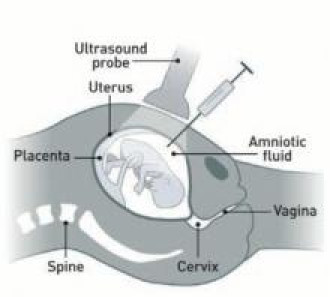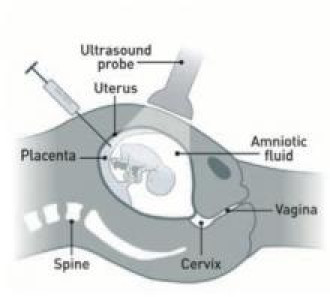Ngā whakamātau hauora mō te pūira kehe me ētehi atu āhuatanga Screening for Down syndrome and other conditions
Choosing whether to screen
Choosing whether to have this screening is an important decision. You need to have enough information to make the decision that is right for you. Some people will want to know if their pēpi has one of the conditions being screened for before they are born. Other people will decide not to have this screening.
Your midwife or doctor can give you information to help you decide.
HealthEd resources
Our HealthEd website has information for pregnant people to help you make an informed decision about optional screening and testing for Down syndrome and other conditions.
Antenatal screening and testing for Down syndrome and other conditions — HealthEd (external link)
Screening options
There are 2 screening options in Aotearoa New Zealand. These are for people who are less than 20 weeks pregnant:
- a blood test and an ultrasound (scan) — if you are less than 14 weeks pregnant
- a blood test — if you are between 14 and 20 weeks pregnant.
If you are less than 14 weeks pregnant
If you are less than 14 weeks pregnant, you can get a blood test and an ultrasound. You need to have both tests to get a result. While the blood test is free, you may have to pay for the ultrasound.
Blood test
It is best if you have the blood test at 9 to 10 weeks. But, you can take it between 9 weeks, and 13 weeks and 6 days.
Ultrasound (nuchal translucency scan)
It is best if you have the scan between 12 weeks, and 13 weeks and 6 days.
The scan measures the fluid at the back of your baby's neck. There tends to be more fluid if your pēpi has a condition.
This scan also checks:
- when your pēpi is due
- how your pēpi is developing
- if you are having a multiple birth (more than one pēpi).
If you are between 14 and 20 weeks pregnant
If you are between 14 and 20 weeks pregnant, your screening test is only a blood test. It is best if you take the blood test between 14 and 18 weeks. But, you can take it up until 20 weeks.
Screening results
To work out the chance of your pēpi having one of the screened conditions, your blood and ultrasound results are looked at with measurements such as:
- your age
- your weight
- how many weeks pregnant you are (your baby's gestational age).
When you will get the results
Your midwife or doctor will give you the results within 10 days of the tests.
Screening results are not perfect. You may be told your pēpi has a higher chance of having a condition when they do not have a condition. You may also be told your pēpi has a low chance when they do have a condition.
If your test shows an increased chance
Your midwife or doctor will discuss the results with you and answer your questions. You can also talk to organisations who help families with tamariki who have conditions.
Your midwife or doctor will also offer to refer you to a specialist to talk about further testing. This may include non-invasive prenatal screening (NIPS) or diagnostic testing.
Non-invasive prenatal screening
If you are referred to a specialist, they might offer you another test called non-invasive prenatal screening (NIPS). This is a blood test from you that gives more information about the chance of your pēpi having Down syndrome or another condition. If the result from NIPS is 'increased chance' you will be offered diagnostic testing to find out for certain if your pēpi has the condition.
Related websites
CCS Disability Action external link
To strengthen communities and provide support so people with disabilities are included in the life of their family and in their community.
Firstport external link
For disabled people, their families, whānau and caregivers, health professionals and disability information providers.
IHC external link
Advocating for the rights, inclusion and welfare of all people with an intellectual disability and support them to live satisfying lives in the community.
Kiwi Familes external link
A website centered on practical parenting advice for parents in New Zealand.
New Zealand Down Syndrome Association external link
A family and whānau driven organisation for people whose lives have been changed by Down syndrome.
New Zealand Federation of Disability Information Centre external link
Promoting and facilitating the local provision of impartial health and disability information and resource services.
Rare Disorders NZ external link
Information for patients, their family and professionals, and building partnerships to accelerate research towards control and cure of rare disorders.
Disability Connect external link
Supporting parents and families of disabled children and young people.
HealthEd external link
Information for pregnant people to help them make an informed decision about optional screening and testing for Down syndrome and other conditions.
Parent to Parent external link
Supporting and connecting the families of disabled people throughout Aotearoa.

